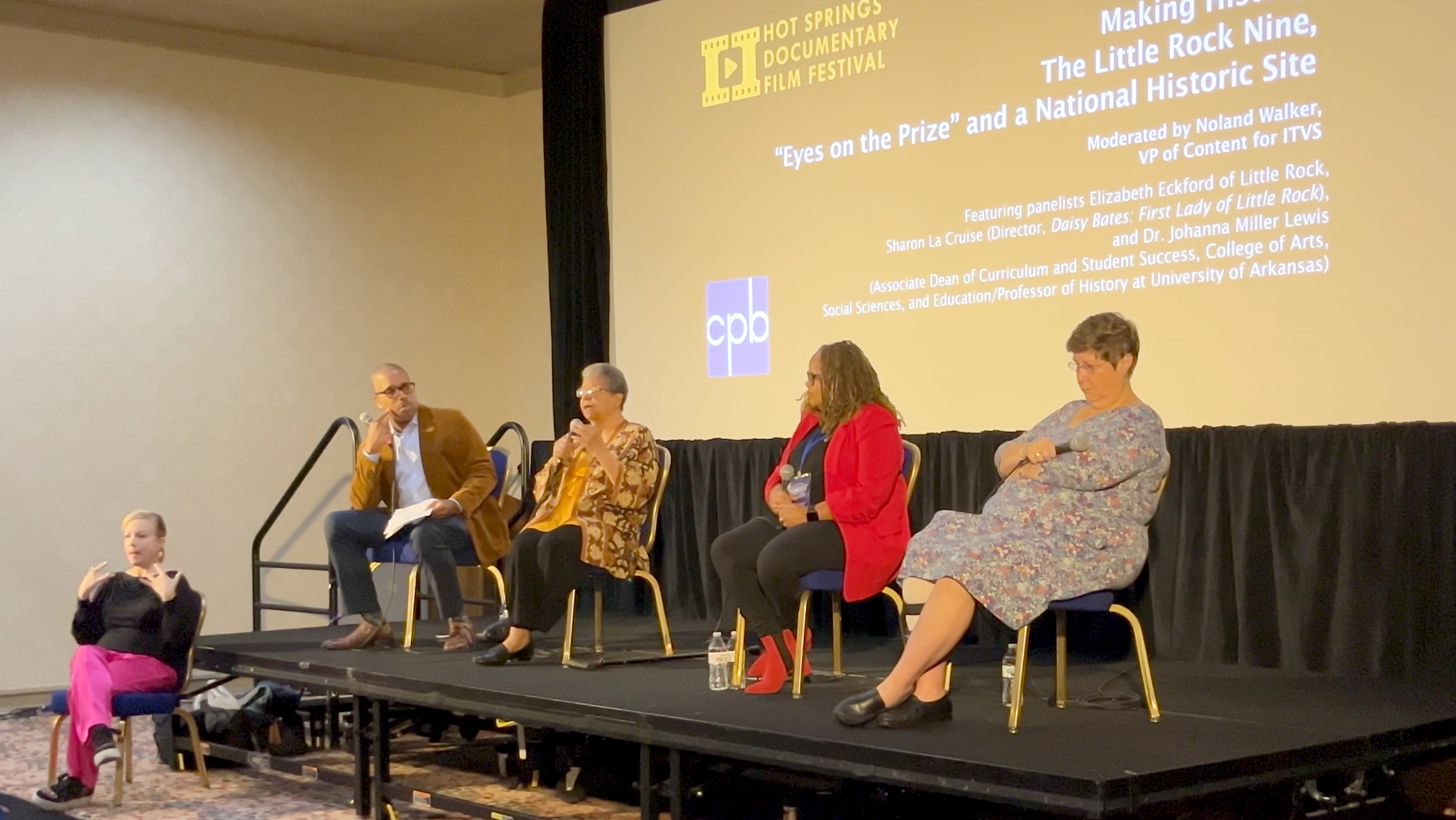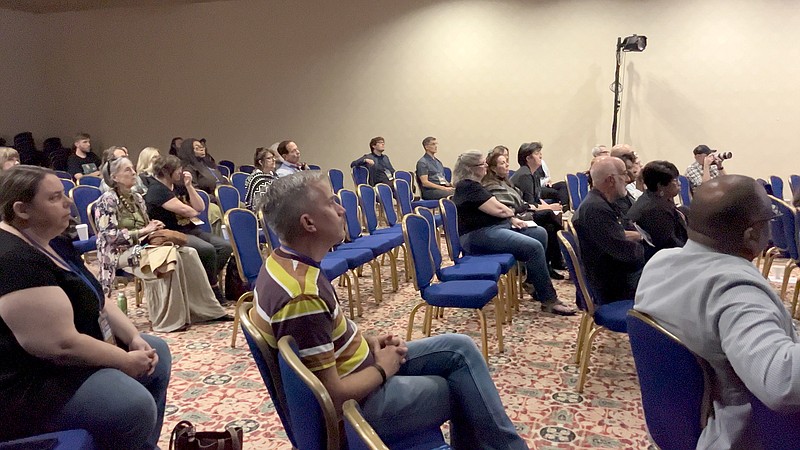HOT SPRINGS -- Elizabeth Eckford, one of the Little Rock Nine who Will Counts photographed being harassed in front of Little Rock Central High School, considers herself "a footnote to history," she said during a panel discussion about the event at the 32nd Annual Hot Springs Documentary Film Festival on Tuesday.
The panel, part of the festival's Filmmaker Forum, was moderated by Noland Walker, the vice president of content for ITVS, and featured Eckford, documentary director Sharon La Cruise and UALR Associate Dean of Curriculum and Student Success for the College of Arts, Social Sciences and Education.
"I consider myself a footnote to history," Eckford said. "And I'm very appreciative of people who are thinkers and look at things from a long-range point of view. I'm remembered because of the mob scene photograph."
Walker responded that Eckford brought up a good point.
"I've been in Andrew Young's presence and interviewed and spoken with him many times, and one of the things he likes to say -- many times -- is 'pictures don't lie.' They do now, but they used to not lie," he said of the civil-rights leader.
"I think that is such an important point," Lewis said. "And why AI scares the bejesus out of historians."
Lewis was on the committee that worked on the exhibit for the 40th anniversary of the event in 1997, and Randy Preddy, a longtime journalist who was teaching at Baylor University at the time, brought her his photos of the incident.
"He brought me this treasure trove of photographs that had been taken by kids that worked on the school newspaper," she said.
"And all of a sudden, I'm seeing all of these photographs that the press did not have.
"And the one photograph that just knocked my socks off -- and it was just so weird I actually had to let Elizabeth see it and say, 'Do you remember this or not?' -- is when she is sitting on the bus bench at first alone. The first person who came to sit with her was not Grace Lorch. It was L.C. Bates, Daisy Bates' husband."
When Lewis showed the photo to some of the other members of the Little Rock Nine, they actually thought it was digitally manipulated.
"So especially for all of you who are filmmakers, those images can be history-changing," she said. "So keep doing the research, keep trying to find the weird film clips. I spent hours in D.C. going through Army Signal Corps films of what happened at Central. So yeah, do the hard work."
La Cruise, who directed the film "Daisy Bates: First Lady of Little Rock," said she learned of Bates from a photo exhibit and started reading about her before deciding to try telling her story.
"I have to confess: when I first came to Arkansas in 2004, I came in search of a saint," she said. "I was looking for the next Rosa Parks, who nobody knew about outside of Arkansas. And when I got here, I found out ... people were really excited about the idea of telling Daisy Bates' story, even though there are quite a few people who did not like her."
While working on the film, La Cruise spent quite a bit of time with Eckford, "wooing her" to agree to be interviewed for it.
"We had lunch. I went to her house. I took her to Home Depot at one point to go shopping. I spent a lot of time. I really wanted her in the film, but she made it very clear to me that she doesn't do a lot of TV interviews," La Cruise said.
"She hadn't done one in a very long time because she did find some of those experiences traumatic. So she had stopped doing any TV interviews. She was doing print more than anything, and it was my greatest honor the moment I got her to sit in that chair."
An audience member asked Eckford at the end of the session if she ever received the treatment she needed because of the trauma she experienced as a 15-year-old girl.
"They didn't recognize that I needed aftercare," she said, noting that she was not diagnosed with post-traumatic stress disorder until 1981. "In fact, I wasn't aware of the impact on me until the 1980s because I had been in the military for five years. I wouldn't have been able to go in if they had known that I had some problems."
Walker asked Eckford what she thought was impossible to capture on film, having been in a documentary.
"People expect that there will be progress," she said. "America's trek toward equality is long, arduous and uneven. And that's not always front and center."
 Elizabeth Eckford, second from left, discusses her experiences as part of the Little Rock Nine as panel chair Noland Walker and fellow panelists Sharon La Cruise and Johanna Miller Lewis listen during a panel discussion that was part of the Hot Springs Documentary Film Festival's Filmmaker Forum Tuesday. - Photo by James Leigh of The Sentinel-Record
Elizabeth Eckford, second from left, discusses her experiences as part of the Little Rock Nine as panel chair Noland Walker and fellow panelists Sharon La Cruise and Johanna Miller Lewis listen during a panel discussion that was part of the Hot Springs Documentary Film Festival's Filmmaker Forum Tuesday. - Photo by James Leigh of The Sentinel-Record
